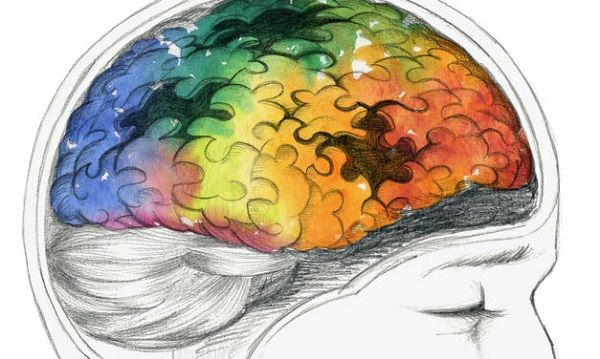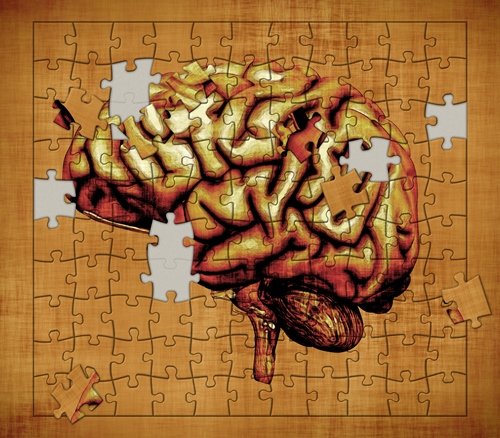How our brains lie to us

Many think our brain is a perfect machine that never fails. But this machine has its own bugs, which are called cognitive deviations. What are the most interesting brain traps in which everyone has been at least once?
The cure of the knowledge
The more information you store in your brain, the less helpful it becomes. In a psychological experiment the participants were divided into two groups. One had to play a melody, while the second was to recognize it. The melodies were so popular that at least 50% of the second band was expected to recognize it. In fact, only 2.5% have succeeded. The truth is that people who store more information in their brains are often unable to look at a situation with the ease with which less-informed people can.
Conservation of the status
People prefer things to stay the way they are. Our brain tends to make us think that the potential benefits we can get from a new opportunity are not worth as much as storing the already existing or already achieved.
Illusion of transparency
People have the imprudence to overestimate the ability of others to understand. For example, we think everyone can see our nervousness or insecurity, but in fact, virtually no one has an idea about our feelings and feelings.
The need to prove your point of view
People tend to look and see only the facts that confirm their own opinions. The choice and storage of information is selective. Those that do not contradict the point we have already learned are a top priority. And not just the search for information is diagonal, but also the interpretation, and even our memories.

The effect of overestimation
This phenomenon was described in 1970 by Richard Thaler and Daniel Kanemann. They have found that people are prone to appreciate the things they already own. People are willing to sell something they love for a much higher price than they paid for themselves.
Professional distortion
The profession leaves its mark on the person. Many IT specialists are looking for systemic mistakes in real life, psychologists are constantly analyzing their friends and trying to solve their problems, and teachers tend to behave often in their everyday life.
Planning errors
Cognitive traps make us think that a task will take us a lot less time than it actually happens in the end. The visualization of the result is often also very optimistic.
But when we plan the time for a task that someone else has to do, we have the attitude of thinking that it will take a lot more time than it really is needed.
Underestimation of inactivity
People think that inaction is the better choice than the action and that it will give almost the same result. In fact, by refusing to make a choice, we are getting rid of responsibility. Anyway, inaction is always the worst choice.
The effect of the familiar
This is the tendency to attract familiar objects for no good reason. This concerns people as being familiar to us, makes them more attractive, and brands the more advertised and more recognizable they are, the more customers believe.
Information cascade
People have a tendency to believe in certain information just because it has appeared in the public domain. For example, we rarely doubt the events reported in the news. We also like to agree with the opinions shared by our friends on Facebook.
Rationalization after purchase
Cognitive traps also include a so-called "Consumer Stockholm Syndrome". Once we have bought something dear, we need to look for reasons to confirm that we have made the right choice. Most people have a strong need to believe that what they bought is worth the money.
Basic functional error
People tend to attribute their success to their personal qualities, until the failures explain in external circumstances. When we talk about others, however, we use the reverse logic, their successes are pure luck, while their losses and failures are the result of personal deficiencies.
The best thing you could say was Planning errors.
I love your post
Thanks :)
That's completely true. Our brains are entities in their own and completely capable of accomplishing or destroying absolutely anything. You've explained in layman's terms all the scenarios which make us dysfunctional even in the slightest in today's world. The defense mechanisms and supposed "caution" that the brain is always in pursuit of are most definitely tricky and capable of confusing us, especially if we don't understand the complex organ sitting up north.
This is brilliant @godflesh.
Especially agree that people tend to look and see only the facts that confirm their own opinions. The choice and storage of information is selective. Those that do not contradict the point we have already learned are a top priority.
Hello @godflesh! I see you have an interesting article. May I give you some advice? Would you consider adding some references and image sources (unless they're not copyright protected) to your posts? References help a lot in further studying of the topic and add up to the post's credibility ;)
Hello @ruth-girl, thank you for the advice! I add the image sources and when I write other articles I will add if there are references too.
Great! Have a nice day! :)
Loved this post, was linked to this post by a dear loved one, It is beautiful how the human brain works, its even more beautiful how it sometimes deceives us.